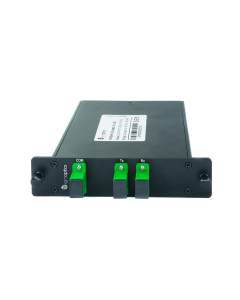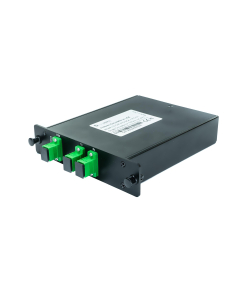Shop By
Shopping Options
- Limited availabilityOptical Circulator 1310 nm with SC/APC connectors, LGX housing Model: LO-CIR-010-SCA-1310-NL€142.10 €174.78
HOW DOES AN OPTICAL CIRCULATOR WORK
Optical circulators operate in the O band (II window) or C band (III window). They work based on the principle of orthogonal polarization of light moving in opposite directions, which allows bidirectional transmission at the same wavelength.
In an optical circulator, thanks to high directional insulation and low insertion loss between ports, it is possible to transmit and receive a signal on the same wavelength, e.g. 1310nm, using only one optical fiber on the optical path.
ADVANTAGES OF USING LIGHT OPTICS CIRCULATORS
- you can increase network capacity without the need to lease or install new optical fibers
- passive device - no power supply, so you do not have to worry about power outages
- high quality on a budget
- low insertion loss below 1.2dB, no need for additional signal amplification
- small dimensions, LGX housing with excellent mechanical strength
- built-in SC/APC connectors, easy installation










